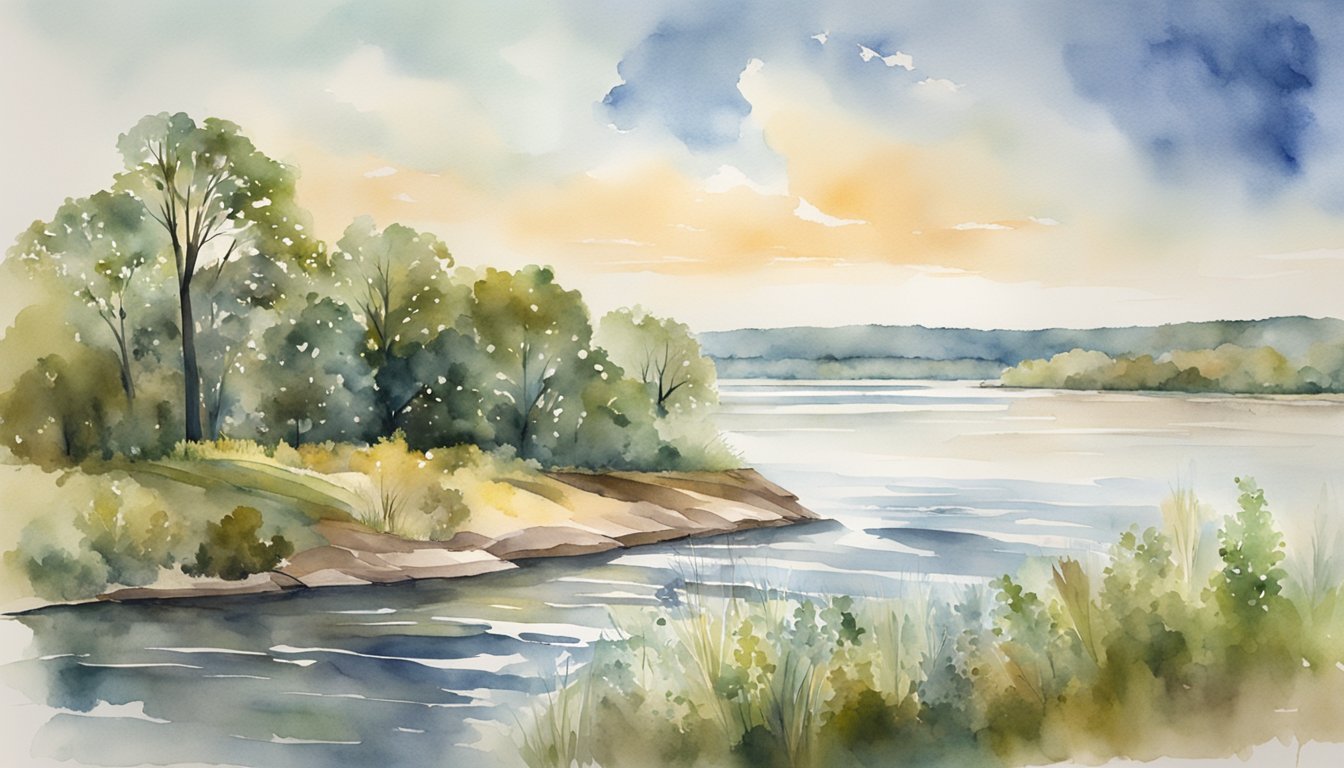Overview of Mississippi
Geography and Climate
Mississippi is a southeastern state in the United States, bordered by Tennessee to the north, Alabama to the east, the Gulf of Mexico to the south, Louisiana to the southwest, and Arkansas to the northwest. The state’s capital is Jackson, located in the central region. Mississippi’s land area is approximately 48,430 mi² (125,438 km²) which ranks as the 32nd largest state in the US. Its diverse topography includes the Gulf Coastal Plain, the Pontotoc Ridge, and the Tombigbee Hills.
The state is known for its climate, which is largely subtropical with hot summers and mild winters. However, Mississippi is susceptible to hurricanes due to its location along the Gulf Coast. The many rivers, such as the Pearl and Tombigbee, give the state its nickname, “The Magnolia State.”
State Symbols
Mississippi is rich in state symbols, which represent its culture and history. The state flower is the Magnolia, while the majestic Southern Pine is the state tree. The state bird is the Northern Mockingbird, known for its melodic songs and ability to mimic other birds’ sounds. “Virtute et Armis” is Mississippi’s state motto, meaning “By Valor and Arms.”
An interesting fact about Mississippi’s state animal is that it is the Teddy Bear. The story behind it dates back to 1902 when President Theodore “Teddy” Roosevelt refused to shoot a captured bear during a hunting trip in the state. The incident led to the creation of the famous stuffed toy that is loved by children worldwide.
Mississippi has a rich history, unique geography, and a diverse collection of state symbols. The state’s landscapes range from the Gulf Coastal Plain to the rolling hills of Tombigbee, offering residents and visitors engaging experiences in its diverse ecosystems.
What Are the Key Differences Between Mississippi and South Carolina That Make Each State Unique?
Mississippi and South Carolina showcase unique cultural and historical landscapes. While Mississippi is renowned for its blues music and rich literary heritage, south carolina highlights its stunning coastal resorts and historical sites like Fort Sumter. Both states boast delicious southern cuisine, but their distinct traditions set them apart.
History and Culture

Indigenous Peoples and Exploration
Mississippi’s history dates back to the Native American tribes that occupied the region, including the Choctaw, Chickasaw, Natchez, and Yazoo. These tribes adapted to the region’s fertile alluvial plain, known for its abundant forests and rich soil. The area was first explored by Europeans in the 16th century, when Spanish explorer Hernando de Soto arrived. Later, French and English explorers also ventured into Mississippi, leaving their marks on its history.
Historical Events
In 1817, Mississippi became the 20th state to join the United States on December 10th. Throughout its history, the state has experienced significant events, such as its secession from the Union and involvement in the American Civil War. Mississippi, part of the Deep South, was a Confederate state, and its geographical location along the Mississippi River made it a strategic site during the war.
The state has also played a vital role in the Civil Rights Movement. Throughout the 20th century, African Americans and their allies fought for equal rights and an end to racial discrimination. One notable event was the University of Mississippi Medical Center performing the world’s first human lung transplant in 1963.
Another consequence of Mississippi’s location along the Gulf of Mexico was its vulnerability to natural disasters, such as Hurricane Katrina in 2005, which caused widespread destruction and loss of life.
Cultural Contributions
Mississippi has made significant contributions to American culture, especially in the realm of music. The state is considered the birthplace of blues music, which originated in the Mississippi Delta region. The blues has greatly influenced other genres, such as jazz, rock, and gospel. Icons like B.B. King and Muddy Waters, as well as the “King of Rock and Roll” Elvis Presley, all hailed from Mississippi.
Agriculture, primarily cotton farming, has also been a significant part of Mississippi’s history and economy. Its nickname, the “Magnolia State,” is inspired by the state tree, the Southern Magnolia, and the state flower, the Magnolia blossom. Other notable natural features include the state bird, the mockingbird, and its diverse ecosystems, such as the Mississippi River and the Catfish industry, which provides a major source of income for the state.
Overall, the rich history and culture of Mississippi continue to be of great importance to the United States. The state’s unique contributions to music, agriculture, and civil rights have shaped its identity and left a lasting impact on the nation.

